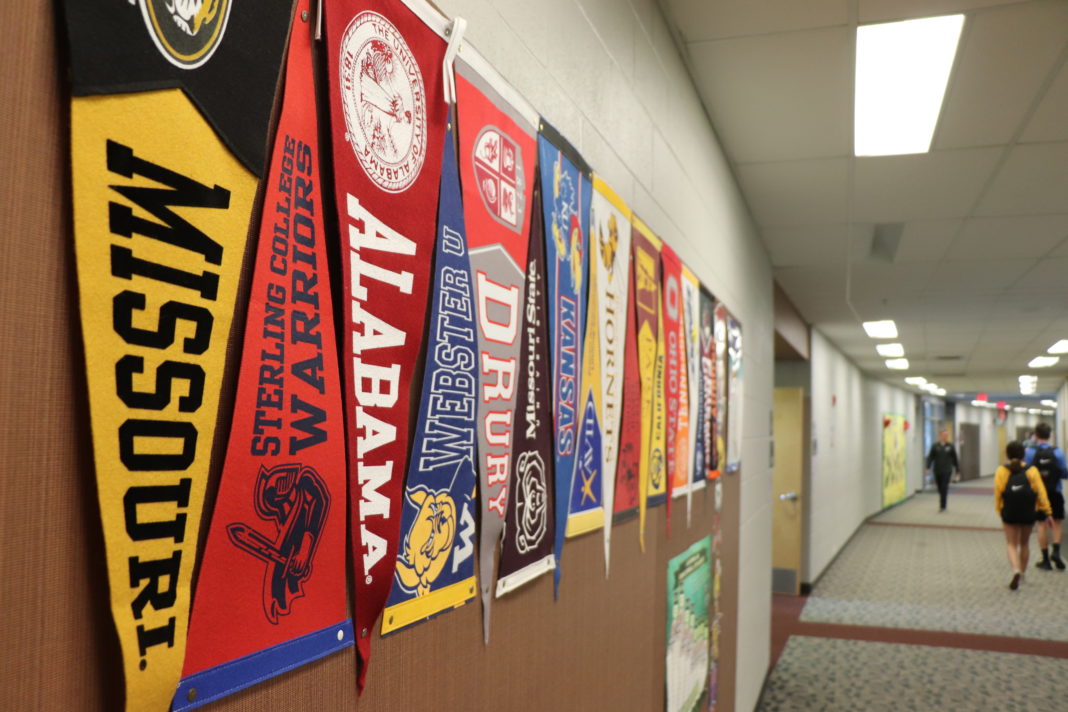Trent Brink
The now awakened College Admissions Scandal that found Hollywood stars, top CEOs, college coaches, and standardized test administrators guilty of falsely admitting students who were under-qualified has exposed a problem within the United States higher education system. Students at West claim to have been known to these problems.
Not everyone has a parent that is a Hollywood star or a top CEO that could afford to pay for these elite institutions, as Senior Jackson Boeck describes. “I know this is something I probably should have had figured out months ago, but the problem is this entire time I’ve been trying to get scholarships to afford my dream school.”
While these state schools such as the University of Missouri are more popular and uphold larger student bodies, Boeck describes their overwhelming cost regardless of popularity.
“Unfortunately money is a factor and Mizzou is not financially feasible. I have been awarded Mizzou’s second highest scholarship and it isn’t even a fourth of the twenty plus thousand dollars it would cost me to go there which isn’t fair especially to my parents who would be financing part of my education for me to go somewhere basically to have fun. Going to college, I’ve realized, is about getting an education first and the experience second and It would not be fair for me to go somewhere I can’t even afford,” Boeck said.
The Boston Globe reports that “Getting into the country’s most selective colleges is more fiercely competitive than ever, with many schools reporting a record number of applicants, boosted by an easier application process and more aggressive recruiting.”
The decision is also one that’s conscious of the far future, in addition to the near present. “Being able to afford where I go to school is absolutely essential because I have absolutely no idea what it is I want to do career wise and it is a lot easier to mess up or change majors when I’m not actively losing money to attend school,” Boeck said.
The Boston Globe also cites that the rate of college acceptances is down year to year, “Twenty years ago, for example, Tufts University admitted 33% of the students who applied; last year Tufts made offers to just 15% of the pool. Northeastern University extended offers to nearly four out of five applicants in 1998, but only one out of five this year. Williams College admissions rate has shrunk from 26% to 12% over two decades,” the Globe reported.
Similar to Boeck, senior Caitlin Swinford also has parents familiar with not only the cost of college but the process as a whole. Swinford said that the process was fairly easy because her brother has already been through college so her parents were able to help her through the process.
Swinford also had a problem with the price of the process. “The only thing that was hard for my family were application fees, so I had to be sure I really wanted to go there before they paid for me to apply,” Swinford said.
Swinford’s process also incorporated trying out for the University of Central Missouri Cheer team. Swinford said that marketing herself to colleges to be recruited also played a role in the process.
“Being in a sport that involves a tryout rather than recruiting, I had to look at schools I wanted to not only cheer at, but also like the school. I also applied for schools that I wanted to go to in case cheerleading didn’t work out,” Swinford said.
Swinford said that the worst part about the process is how long it takes. “Depending on the application, it could take you a lot of time, especially if you have to self-report your grades,” Swinford said.
Swinford said that younger students should start applying as soon as possible. “Keep your options open and do as many visits and apply to as many places as you want to. It never hurts to be open minded, especially with a big decision such as college,” she said.
Eliana Shalzman of Kveller.com summarizes the process from a maternal perspective, saying, “despite the fact that there is life beyond college, the admissions process is an arms race. If your kid hasn’t cured cancer, written a New York Times bestseller, or founded a non-profit at 17, then don’t even bother applying to the top schools.”















